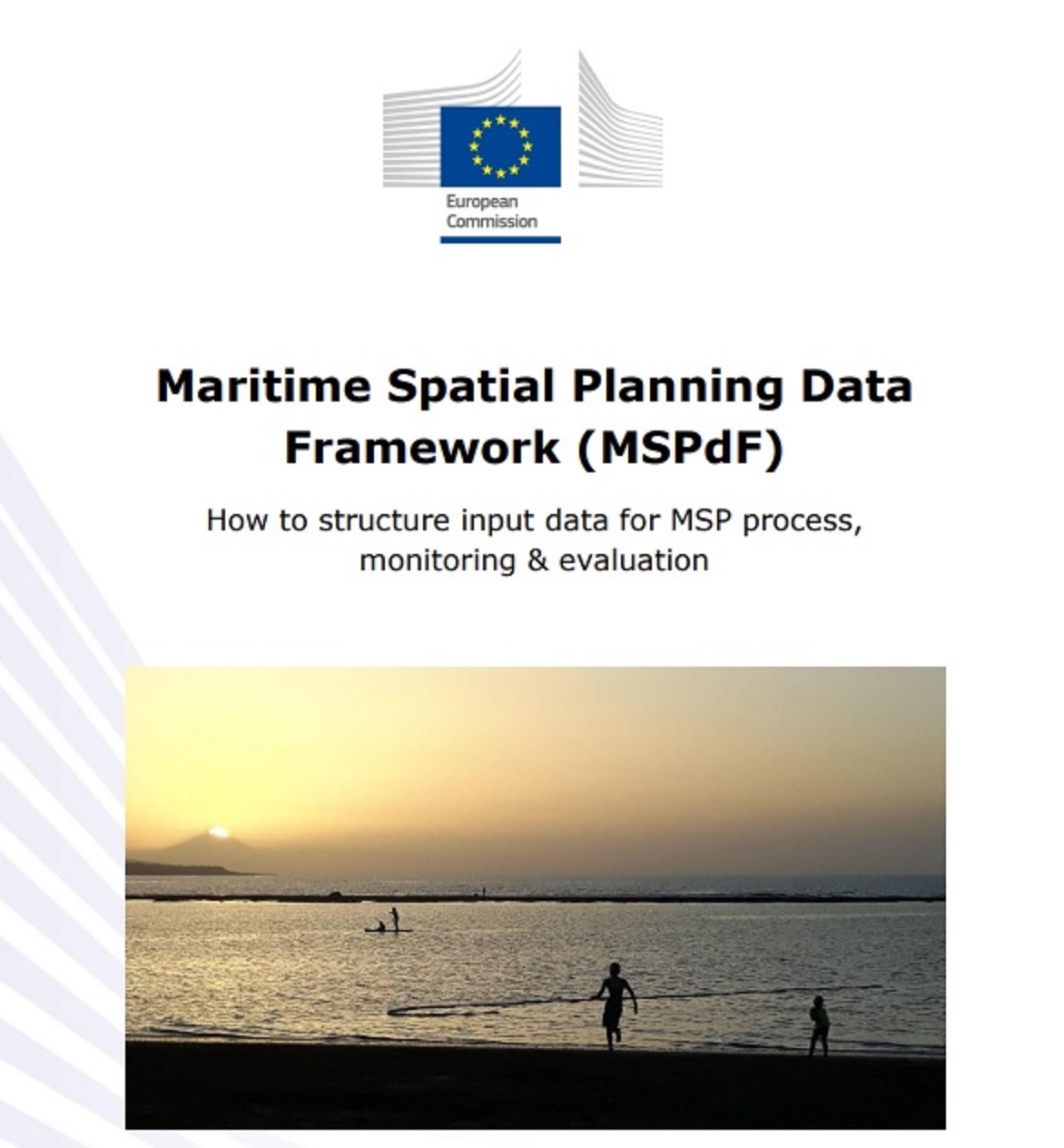
The process of Maritime Spatial Planning (MSP) requires the collection of spatial data and information related to a great variety of issues and processes. When facing the data collection task, it is necessary to answer questions such as: how can we define the marine environment or marine biodiversity? What type of data should be collected and included in the analysis for suitability zoning of economic activities, cumulative impact assessment or land-sea interactions? What are the relevant maritime and coastal uses? What type of information needs to be collected within the socio economic and governance topics?
To answer these important questions this document presents a conceptual framework proposed to be applied to identify and structure the data necessary for the development of maritime spatial plans. The MSP data framework (MSPdF) provides the structure to organise input spatial information and data that needs to be considered within the full MSP process.
The required input data has been organised in seven thematic clusters covering from the marine environment through to governance themes, according to the experience of previous initiatives. Each cluster is provided with a description, including its relevance to the different stages of the planning process, structure mainly based on already established frameworks, digital resources for data management and harmonisation, and possible data sources. It is expected that this document will serve to facilitate the MSP data collection process and management.
MSPdF is not only valuable for structuring data collection processes, but also for the following MSP evaluation and monitoring process. The framework facilitates users to go through each cluster and identify the type of information relevant for a specific planning process, assessing the data collection of the plan. In this way, it is possible to identify spatial information relevant and available, even though it might not have been used within the planning or zoning exercise. This provides the opportunity to include available information, not considered in the planning, but applied in the following steps of monitoring and evaluation (e.g., unconsidered temperature trends due the climate change, available by Copernicus program). The framework is indexing potentially relevant parameters for decision making and planning.
This document was produced by the Technical Expert Group (TEG) on Data for MSP, chaired by Joni Kaitaranta from the Baltic Marine Environment Protection Commission (HELCOM) and Andrej Abramic from the ECOAQUA Institute of the University Las Palmas de Gran Canaria. The TEG is directly supported by CINEA represented by Anja Detant, DG MARE represented by Juan Ronco and the MSP Assistance Mechanism represented by Chris McDougall.
Read the full document here!
